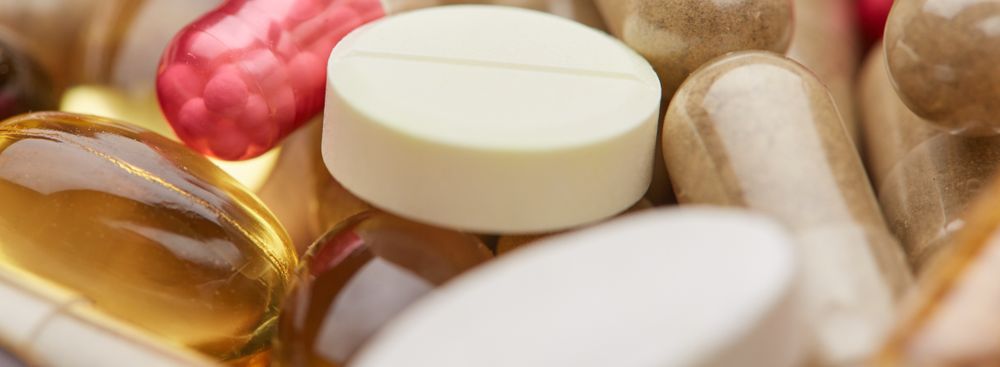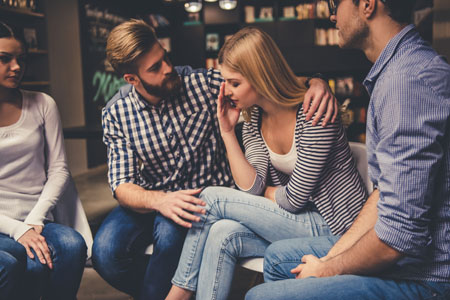Kava Symptoms and Warning Signs
Kava Info
While commonly used in the Pacific islands as a drink similar to alcohol, Kava is a banned substance here in the UK. However, that does not stop it being an abused substance and one that can cause addiction and harm to health.
Kava comes from the Piper Methysticum shrub, which is native to many western Pacific islands. As a substance that has similar effects to alcohol, it induces feelings of relaxation and well-being. However, when taken in large doses or abused, Kava has the potential to cause a loss of muscle control, nausea, and drowsiness; also like alcohol.
In countries where Kava is legal, it is often used as a way of getting high. And despite it being illegal here in the UK, many people still use this substance because they have developed an addiction to it.
Kava is available as a liquid, powder, capsules, drops, and extracts. It is commonly used by Pacific islanders and is part of their culture. They use it in religious ceremonies but also as a treatment for health problems such as muscle pain, anxiety, restlessness, and sleeping problems. Nevertheless, it has been linked to liver damage, hence the reason for its ban in many countries around the world.
Other Names for Kava
- Kava Kava
- Ava Root
- Long Pepper
- Sakau
- Kawa
- Lewena
- Waka
- Yangona
- Kew
- Awa
- Tonga

Recognising the Common Warning Signs of Kava Abuse
As a mood-altering substance, Kava is prone to abuse. Any substance that can affect the mind can be addictive in terms of the effects it can have on the pleasure and reward centres of the brain.
Despite Kava being derived from a naturally-occurring plant, it is a substance that can be, and is, abused. Opium and heroin alike are also derived from plants. It is important to know the signs of Kava abuse. For example, if you are using Kava recreationally, you may have initially used it occasionally without any problems. You might have had full control and could decide when to use it and when not to.
Nonetheless, if you have developed a tolerance for the substance, you could find that you need more of it to achieve the desired feelings. This is because your brain has adapted to its presence and is now releasing fewer feel-good chemicals when you use it.
Quite often, those who use mood-altering substances for recreational purposes will not even realise that they have developed a tolerance or that they are consuming more than they used to. This is a process that occurs gradually, and so it can be easy to miss until it becomes a problem.
If you allow your use of Kava to interfere with your everyday life, you may be on the path to addiction, so it is important that you act and do something about it as soon as possible. Increasing your consumption of Kava can be harmful in many ways, so you better confide in a loved one or a professional. Why not both?
The Dangers of Kava Abuse
There are quite a few reasons Kava has been banned in many countries, despite it being used in the Pacific Islands for centuries. As mentioned above, Kava has been linked to liver damage, even when used in normal doses over a short period. It has also been linked to the deaths of some people who had been using it.
Due to the sedative effects of the drug, taking it in high doses can induce strong feelings of drowsiness that could impair your judgement and leave you vulnerable to injury. Driving or operating heavy machinery while under the influence of Kava can potentially result in fatal consequences.
There is some evidence to suggest that Kava can make some conditions, such as Parkinson’s disease and depression, worse and so should definitely be avoided by those who suffer from such health problems.
Abuse of Kava can result in an addiction that could end up causing problems in your relationships and wreak havoc upon your finances. It is impossible to abuse any mood-altering substance without it having an impact on some areas of your life.
If you become consumed by Kava, your behaviour will change, and you will more than likely lose interest in people and things that were once important to you. In fact, you may put Kava above everything else in your life; as you might imagine, this will have a negative impact on many aspects of your day-to-day life.
An addiction may harm your ability to earn an income. If you are spending most of your time under the influence of Kava, you will stop being able to perform well at work. To negate these effects and solve the problems leading to your addiction instead, you should seek advice from professionals and help from your loved ones.
Call our admissions line 24 hours a day to get help.
Recognising a Kava Addiction
Drug abuse often progresses to drug addiction, although not always. It is important that you can recognise the signs of a Kava addiction so that you can get the help you need as soon as possible. You should be aware that addiction is a pattern of behaviour that has a negative impact on your life. So if your use of Kava is affecting daily life, you may already have a problem that needs dealing with.

You should consider how much control you have over your use. If you are struggling to stay away from Kava and use it even when you know that doing so will have negative consequences for yourself or those you love, it is likely that you are addicted to it. You will be compelled to use Kava even when you do not want to, and you will be powerless to resist the urge.
If you are experiencing symptoms such as headaches and nausea when the effects of Kava wear off, this may be the result of a physical dependence and could indicate that you need a detox and rehabilitation programme to get your life back on track. However, it is generally accepted that addiction to Kava is more of a psychological addiction than a physical one, and you will almost definitely not experience withdrawal symptoms when you stop using it.
Kava Addiction and the Brain
Compounds in Kava known as kavalactones affect certain areas of the brain to induce feelings of euphoria and relaxation. Kava influences the central nervous system and because it increases GABA activity in the brain can have a calming effect. It affects the brain in a comparable way to alcohol and as such activates the pleasure centres resulting in the release of dopamine chemicals.
Kava can also affect the reward centre of the brain, basically making you want to use it again and again. This is what can lead to an increased tolerance and an addiction.
Learn the Immediate Side Effects of Kava Abuse
The effects of Kava depend on how much of the drug is taken, how strong it is, and other factors such as the size and weight of the person using it, but not everyone will experience the same feelings. Nevertheless, some of the common immediate side effects of Kava abuse include:
- euphoria
- relaxation
- mild sedation
- numbing of the mouth and throat
- loss of appetite
- nausea
- drowsiness
- mild fever
- red eyes
- dilated pupils
- loss of muscle control
Learn the Long-Term Kava Abuse Side Effects
There is a risk of liver damage with both short- and long-term Kava abuse. Signs of liver problems include:
- fatigue
- yellowing of the skin or eye sclera
- loss of appetite
- dark urine
- itching
- abdominal pain
- nausea
- clay coloured stools
There are other long-term side effects of Kava abuse to watch out for, including:
- weight loss
- puffy face
- dry, scaly skin
- yellowed nails
- blood in your urine
- lung problems
- blood disorders
- a decreased ability to absorb protein
Call our admissions line 24 hours a day to get help.
Intervention for a Kava Addiction

Kava abuse can be very dangerous, and it can even be fatal in extreme cases. If you are worried about a person close to you, it is probably best to address the issue head-on because hoping that the problem will go away will just prolong the inevitable. As with any other addiction, this is an illness that will not go away by itself. It is important that you speak to your loved one and raise your concerns, however much you may want to avoid the issue.
As addiction is still, unfortunately, such a taboo topic, many people do not like to accuse others of being affected for fear that they will upset them. However, if you are concerned, know that upsetting your loved one should be the least of your worries. If you are wrong, then there is no real harm done. If you are right though, you could be the catalyst that spurs the affected person into action.
Detox and Withdrawal from Kava
Kava does not normally cause a physical addiction, so it is unlikely that you would need a detox programme. Nevertheless, if you do have a psychological addiction, you will need a treatment programme to help you break the cycle of abuse and learn more about what caused your dependence.
Treatment and Next Steps
As just mentioned above, overcoming a Kava addiction starts with learning what caused it. Your use of Kava may have been the result of trying to forget about problems in your life or memories that you find particularly painful. Perhaps Kava provides you with a way to escape your feelings; if so, it is crucial that you address these issues if you want to turn your life around.
Whatever the reason you began using Kava, if your use of this substance is interfering with your ability to live a normal life, it is essential that you get treatment as soon as possible. With the right programme of rehabilitation, you can learn how to quit Kava and develop the skills needed that will allow you to avoid a return to it in the future.
Talking and behavioural therapies are often used in rehab programmes and these will ensure that you can recognise negative thought processes that usually lead to your maladaptive behaviour. You will also learn positive coping skills that you can implement when you are back living a normal life after rehab.
If your addiction is not severe, and there is a minimal risk that you will be tempted to use Kava while in treatment, you may benefit from an outpatient programme that will involve regular counselling or therapy but that will not require an overnight stay in a treatment facility. Nonetheless, if you are keen to overcome your addiction in the shortest time possible or if you are worried that you will struggle to stay clean and sober, you might want to consider an inpatient programme.
Questions about Treatment
Which rehab programme should I choose?
It is difficult to know which programme is right for you, but this is where expert advice can help. You can speak to advisors for a no-obligation assessment of your situation. Hotlines and clinics alike provide such services. You will discuss your Kava use to determine how severe your addiction is. The experts can then advise you on the programme that they believe will benefit you most.
The type of programme that is right for you will meet not only your treatment needs but also your personal preferences, family and work commitments, and your budget.
How long will an inpatient treatment programme last?
If you choose to have treatment in an inpatient clinic, the length of the programme will depend on your needs. Programmes usually last for anywhere between four and twelve weeks. If you have a severe addiction, your programme is likely to be longer. Likewise, if you have more than one type of addiction or if you have an addiction coupled with a mental health disorder, you are likely to require a longer programme.
What type of treatments will be used?
Counsellors and therapists have a huge array of therapies to choose from when helping patients to overcome addiction. There is no single treatment that works for everyone though, so you can expect your treatment plan to be tailored to your specific needs. It is likely that it will include some form of individual counselling and group therapy, as well as holistic treatments to improve your overall wellbeing and reduce stress levels.
What is a typical day in rehab like?
In an inpatient facility, there is a structured programme that is followed by all patients. It is likely that you will have set meal times with various therapy sessions in between. Depending on the treatment provider, there may be time for you to relax in the evenings or at weekends, although some providers like to keep patients busy with activities at all times.
Will I be able to exercise?
Exercise is an important part of a healthy lifestyle and you will be encouraged to include it in your recovery programme. Most inpatient clinics have an onsite gymnasium, where you can exercise and take part in other fitness activities. If there is no onsite gym, you will usually have access to a local gym and will be encouraged to visit it as part of your programme.
By incorporating exercise into your recovery programme, you will have an outlet that you can use when you experience cravings or negative thoughts. Exercise is a very important tool when it comes to relapse prevention as it helps to improve mood and overall sense of wellbeing.
Call our admissions line 24 hours a day to get help.

